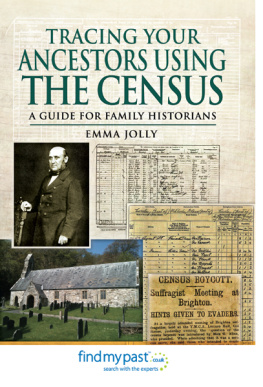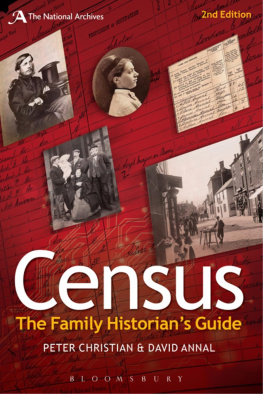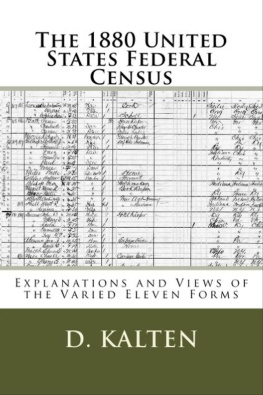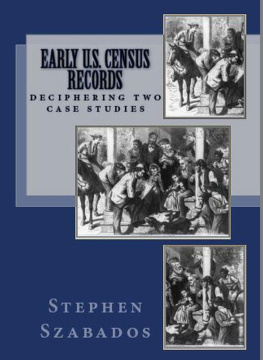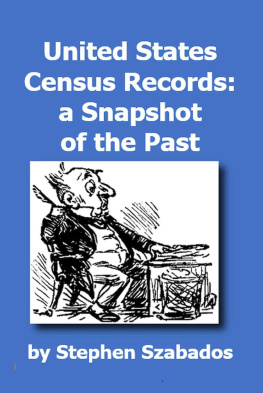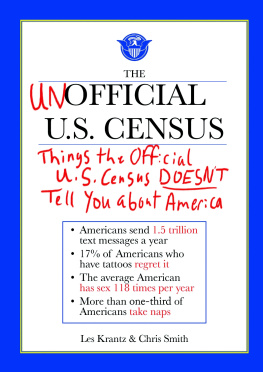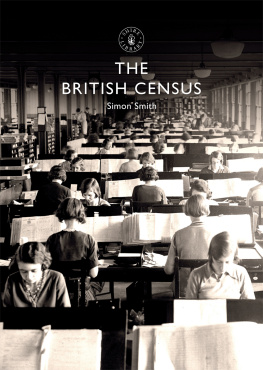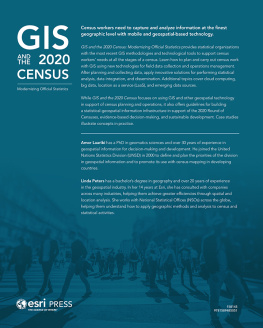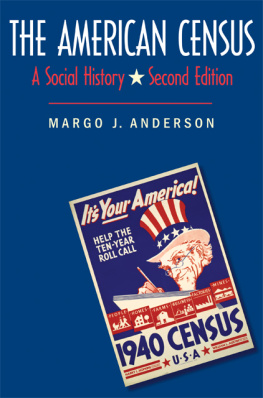
Censuses and Census Takers
This book analyzes the international development of the census by comparing the history of census taking on all continents and in many countries. The timeframe is wide, from male censuses in the Bible to current censuses covering the whole population. There is a focus on the efforts and destinies of census takers and the development of methods used to collect information into the census questionnaires. The book highlights international cooperation in census taking, as well as how computerized access to census data facilitates genealogical studies and statistical research on both historical and contemporary societies. It deals with such questions as Why did the French and British gentry block efforts at census taking in the 18th century?; What role did German censuses play during Holocaust?; Why were the Soviet census directors executed as part of the Moscow processes?; Why did US states sue the Census Bureau in the 1970s?; How do wars and revolutions affect census taking?. The text ends by discussing whether the days of the population census as we know it are numbered, since countries exceedingly construct censuses by combining information from population registers rather than with questionnaires.
Gunnar Thorvaldsen is Professor at the Norwegian Historical Data Centre of the University of Troms, which has transcribed significant parts of the censuses and collaborates internationally to make them available for research. He heads the project to build a Historical Population Register for Norway. He has used censuses and church books for publications on migration, methodology and mortality.
Routledge Studies in Modern History
www.routledge.com/history/series/MODHIST
27Museums in the Second World War
Curators, Culture and Change
Catherine Pearson and edited by Suzanne Keene
28The Chronicle of a Peoples War
The Military and Strategic History of the Cambodian Civil War, 19791991
Boraden Nhem
29The Assyrian Genocide
Cultural and Political Legacies
Edited by Hannibal Travis
30The Russo-Japanese War and Its Shaping of the Twentieth Century
Frank Jacob
31Understanding the City Through Its Margins
Pluridisciplinary Perspectives From Case Studies in Africa, Asia and the Middle East
Edited by Andr Chappatte, Ulrike Freitag and Nora Lafi
32The Style and Mythology of Socialism
Socialist Idealism, 18711914
Stefan Arvidsson
33Capitalism and Religion in World History
Purification and Progress
Carl Mosk
34Michael Collins and the Financing of Violent Political Struggle
Nicholas Ridley
35Censuses and Census Takers
A Global History
Gunnar Thorvaldsen
Censuses and Census Takers
A Global History
Gunnar Thorvaldsen
First published 2018
by Routledge
2 Park Square, Milton Park, Abingdon, Oxon OX14 4RN
and by Routledge
711 Third Avenue, New York, NY 10017
Routledge is an imprint of the Taylor & Francis Group, an informa business
2018 Gunnar Thorvaldsen
The right of Gunnar Thorvaldsen to be identified as author of this work has been asserted by him in accordance with sections 77 and 78 of the Copyright, Designs and Patents Act 1988.
All rights reserved. No part of this book may be reprinted or reproduced or utilised in any form or by any electronic, mechanical, or other means, now known or hereafter invented, including photocopying and recording, or in any information storage or retrieval system, without permission in writing from the publishers.
Trademark notice: Product or corporate names may be trademarks or registered trademarks, and are used only for identification and explanation without intent to infringe.
British Library Cataloguing-in-Publication Data
A catalogue record for this book is available from the British Library
Library of Congress Cataloging-in-Publication Data
A catalog record for this book has been requested
ISBN: 978-1-138-55328-6 (hbk)
ISBN: 978-1-315-14850-2 (ebk)
Typeset in Sabon
by Apex CoVantage, LLC
The author is indebted to numerous colleagues for input on the history of the census and its data processing, at formal meetings in the American and European Social Science History conferences and more informally. My sabbaticals in the Minnesota Population Center, the University of Minnesota have been of especial value, as has input from Elena Glavatskaya and Hilde Sommerseth to parts of the book. Of course, I bear sole responsibility for the books contents. I hope many kinds of census users, from genealogists to quantitatively oriented economists, can find useful and interesting contents, source material and references.
Formalities
The author holds positions at UiT, the Arctic University of Norway and Ural Federal University.
The Norwegian Research Council (project 225950) and the Russian Science Foundation (project 161810105) supported the research.
Introduction
Mwanza is a regional capital and the second largest city in Tanzania. It is located close to the sources of the White Nile, by Lake Victoria.1 In 2005, we were there to interview a representative sample of households, using census-like methods. Dr Teocratias Rugaimukamu of Dar es Salaam University Rugai among friends directed the work, which students and colleagues from the University of Dar es Salaam carried out. Close to the lake, we enjoyed the pleasant climate at an altitude of 1,140 meters above sea level. Further inland it got hotter as we left the main road and drove on steadily rougher dirt roads to reach the most remote villages and farms that lacked electricity and piped water, accessible only by walking. It felt like a trip back through history. People were friendly; both men and women willingly answered the numerous questions asked by our students based on a complicated questionnaire. Curious children surrounded us everywhere.
Interviewing ordinary people in the city itself was not very different. Both the linen hanging to dry on clotheslines and the hens and other small animals in the courtyards were all too familiar from the countryside. However, Tanzanias second largest city has a middle class of traders, some of them of Indian ancestry, shipping goods in transit to Uganda and other central African countries via the lake. In these homes, our questions were not welcome: If we answer this, we have no idea where we shall end up. The students presented their questionnaires in vain and support from university doctors or foreign professors had no effect whatsoever. Why their diaspora had made the Indian traders, fear that the Tanzanian authorities could misuse the information never became clear. Frustrating as it was, the episode clearly demonstrated to students and teachers alike how difficult it may be to carry out formal interviews that are intended to be representative of the whole population. Our respect for the statisticians who have managed to monitor the development of an ever-increasing part of the worlds population grew tremendously.


